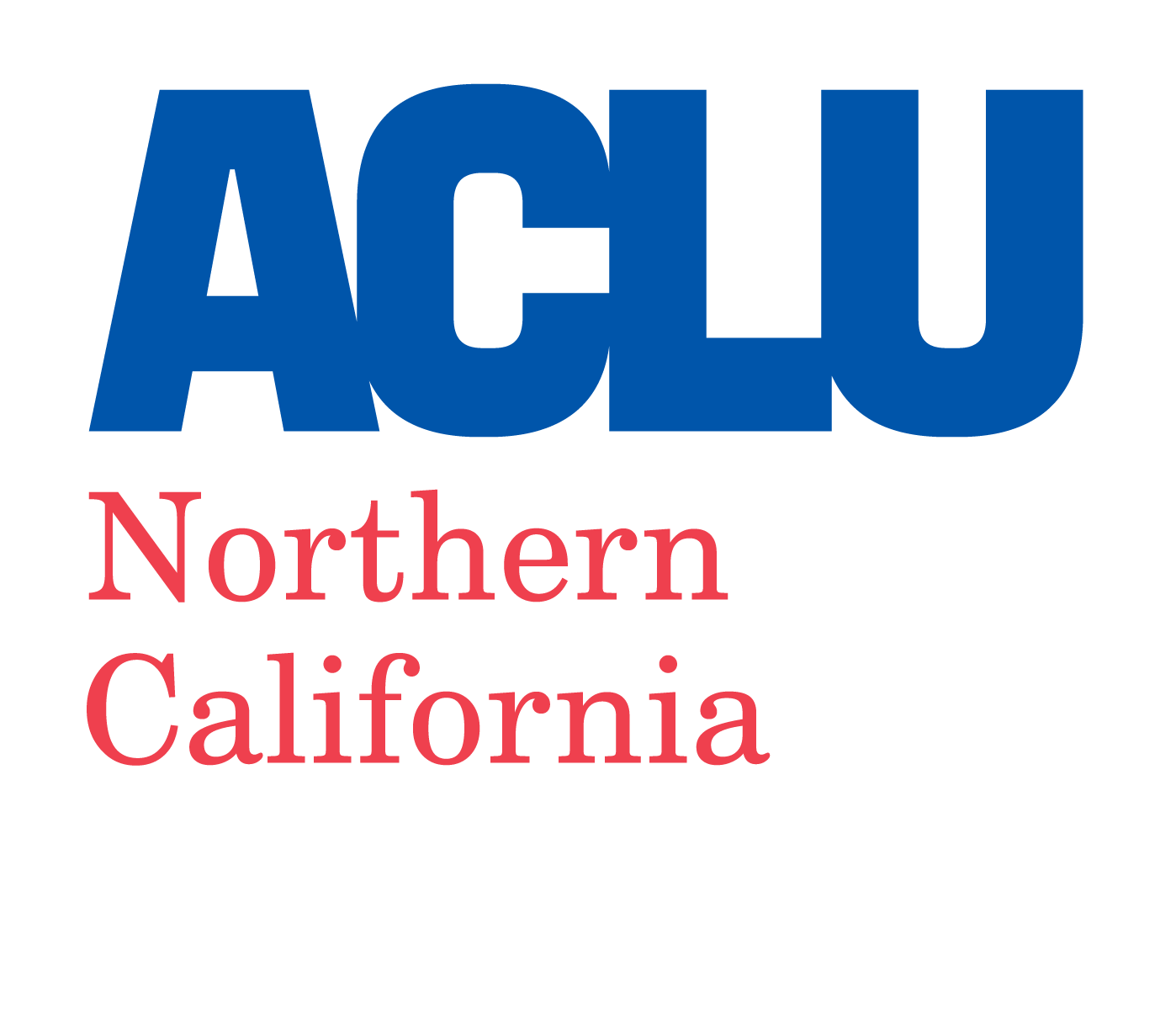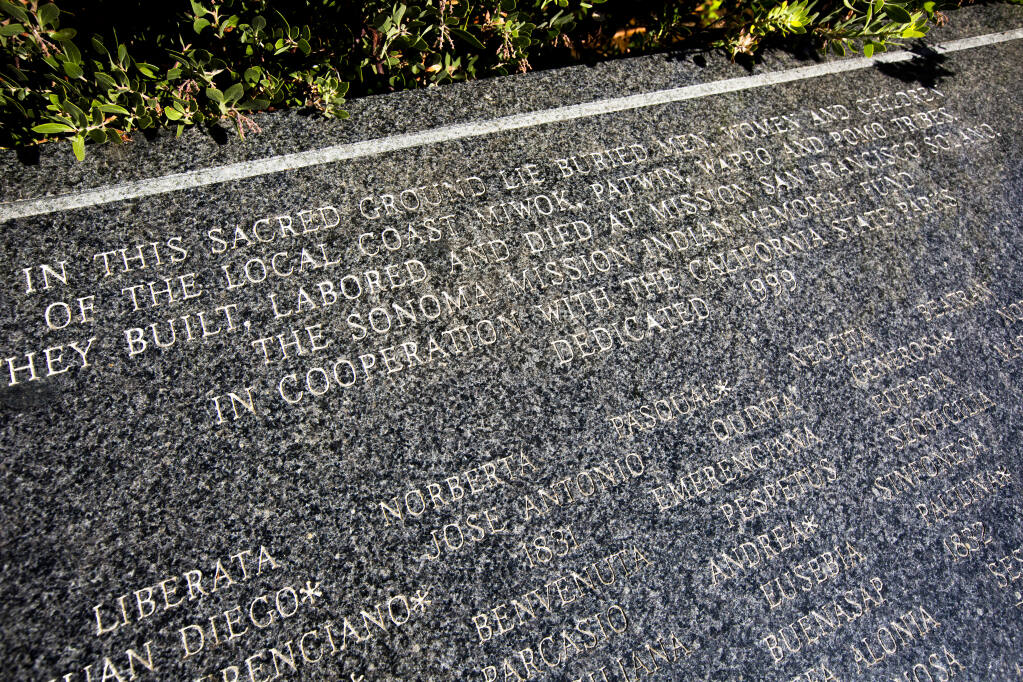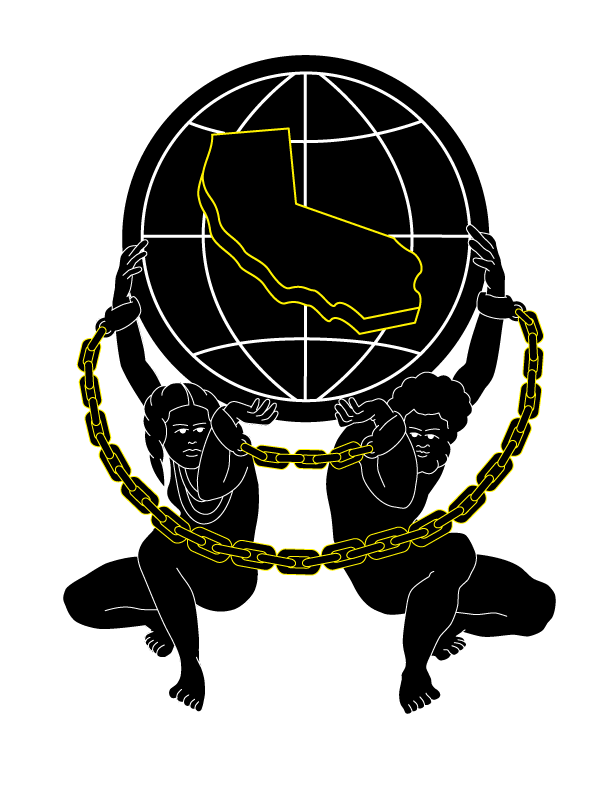
With the eyes of the world watching, California has released a historic report calling for reparations for the descendants of enslaved African Americans. But even though a state panel held public hearings on the matter for two years, interviewing more than 100 expert witnesses, many Californians still have no idea the Golden State enslaved Black people.

July 6, 2023
With the eyes of the world watching, California has released a historic report calling for reparations for the descendants of enslaved African Americans. But even though a state panel held public hearings on the matter for two years, interviewing more than 100 expert witnesses, many Californians still have no idea the Golden State enslaved Black people.
February 7, 2023
Dawn Basciano’s ancestors, who came to California as enslaved people, were eventually able to buy more than 400 acres of land — but some of it was seized by the state under "eminent domain." She says reparations would allow the "full and true story" of her family to be told.
November 28, 2022
Tribal rights are guaranteed by the US Constitution, but modern court cases – including the Brackeen case currently before the US Supreme Court – are reminders that Indigenous sovereignty and Native lands are still at risk in the United States. And in Canada, Indigenous activists are still fighting back against generations of hardship and forced separation of families.
Ray Suarez is joined by Tammerlin Drummond, creator and host of the "Gold Chains" from the Northern California chapter of the ACLU.
November 1, 2022
Today, the ACLU of Northern California released the third episode of Gold Chains, our podcast about California’s hidden history of slavery. “Indigenous Injustice” examines a 19th century state law called the Act for the Government and Protection of Indians that effectively legalized Indigenous child slavery and encouraged kidnappers to snatch Native children from their tribal communities.
June 29, 2022
A full year after Abraham Lincoln signed the Emancipation Proclamation, a Sacramento County farmer attempted to buy an enslaved girl who’d been trafficked to California. He kept her until a pioneering Black entrepreneur and church leader successfully sued for her freedom.
June 21, 2022
Today, we are going to talk about slavery, maybe what comes to mind is the American South- but California has a history of enslavement too. So why isn’t it better known? We’ll hear a story from California's history.
June 18, 2022
The drumbeat for reparations for Black Americans is sounding again, perhaps louder than ever before.
When future generations look at what America had to say about reparations, about the state of Black life in America, it now seems that Juneteenth 2022 will be a crucial moment to study. Whether proponents of reparations leave behind more than flowers may be determined in the months and years to come—but what slavery left behind is no longer in question.
June 16, 2022
Here in California, because of our miseducation, we mistakenly believe that slavery was something that happened far away. As we commemorate Juneteenth, we are called to examine the truth of our own state’s buried slavery history. Let us celebrate the courageous activism of the many enslaved and free Black Californians who fought to abolish slavery and claim full citizenship for themselves and future generations.
February 24, 2022
Black people didn’t always have the right to testify in court in the U.S....and not just in the Jim Crow South, but in California as well, which had a Black testimony exclusion law on the books from 1850 to 1863. That lesser known law, and the consequences of it, is the subject of a new episode of the podcast “Gold Chains,” produced by the ACLU of Northern California. We talk to the podcast’s creator, Tammerlin Drummond, about this history and why Black testimony mattered then – and still matters today.
February 24, 2022
Reparations in California is a series of KQED stories exploring the road to racial equity in the state.
KQED’s coverage of the state's reparations task force is for anyone who wonders about bigger questions like, why is there a disproportionate number of unhoused Black people? Why are incarceration rates highest for Black people? How do guns make it into Black communities? Why do Black communities lack what’s easily accessible to predominantly white communities?
February 24, 2022
In 1861, a white man shot and killed a prominent Black businessman in San Francisco’s financial district in full view of witnesses. But since all the witnesses were African American, they were legally banned from testifying in court.
Today, the ACLU of Northern California released the second episode of our Gold Chains podcast, “Black Testimony Matters,” which examines the state’s little-known testimony laws and their legacy.
February 17, 2022
When we look at the California of today, so much of who we are is because of the Gold Rush. It’s true that people flooded into the state after gold was found in 1848, and that there were opportunities here for some fortune-seekers. But there are darker parts of that history we don’t often hear about. Some of those gold-seekers came from the South and brought enslaved people with them to mine for gold in California.
December 27, 2021
California joined the Union as a free state in 1850, with a state Constitution that expressly outlawed slavery. But two years later, the Legislature enacted its own version of the Fugitive Slave Act, which required law enforcement officers and ordinary white citizens to help slaveholders recapture escaped slaves and return them to the South.
October 14, 2021
California is going it alone on one of the most controversial subjects in the nation: Reparations for African Americans. On this episode of the Fifth & Mission podcast, Tammerlin Drummond of the ACLU of Northern California and Chronicle reporter Dustin Gardiner tell host Demian Bulwa what is at stake.

The memorial for Native Americans at the Mission San Francisco Solano (Robbi Pengelly/Index-Tribune)
October 12, 2021
Under the “Sonoma County Historic Overview” on the county’s website, Native American history is relegated to one sentence: “Sonoma County was inhabited by the Pomo, Miwok and Kashaya Indians.” But no explanation is given for where Native Americans went. Nor why they left. Nor who was responsible for the thousands of Native Americans who died from the colonization of Sonoma Valley. A dusty plaque on First Street East outside Mission San Francisco Solano has the engraved names of dozens of the Indigenous people...
September 24, 2021
In California, a historic, first-of-its-kind effort continued this week that could lead to a reparations package acknowledging the extensive, continued harm done to Black people due to their enslavement.
September 10, 2021
LOS ANGELES TIMES - Unless your school experience was atypical, you probably weren’t taught about the history of slavery in California. That could change for future generations, thanks in part to a new state task force that’s considering the question of reparations for the descendants of enslaved people in California. But it also has the power to transform our understanding of the past.
August 12, 2021
SAN FRANCISCO, CA—Many schoolchildren are taught that California came into the Union as a “free” state and never had slavery. But that story is a lie.
Today, the ACLU of Northern California launched Gold Chains, a new podcast that debunks that myth and documents the little-known history of California’s complicity in the enslavement of African Americans.
July 12, 2021
The oldest African American church on America's West Coast has a proud history of breaking barriers in its community. Formed in the home of a prominent Black man in the pioneer days of Sacramento, St. Andrews, as it is now known, was the nerve center of several important social movements for Californians of color.
October 17, 2020
To understand the quest for reparations for African Americans in California, supporters say, it’s necessary to take a hard look at the prevalence of slavery in the early days of the “free” state.... “In the South you had the cotton fields, and here we had the gold mines,” said Tammerlin Drummond, a spokeswoman for the American Civil Liberties Union of Northern California who has researched the history of slavery in California.
May 15, 2020
KQED - These stories were reported as part of Gold Chains: The Hidden History of Slavery in California. The project aims to lift up the voices of courageous African American and Native American individuals who challenged their brutal treatment and demanded their civil rights, inspiring us with their ingenuity, resilience, and tenacity. Gold Chains is a collaboration between KQED, the ACLU of Northern CA, the California Historical Society, Laura Atkins, and the Equal Justice Society.
January 15, 2020
Even today’s most progressive states have a troubling history with slavery. California is no exception. The ACLU has started a public education campaign called “Gold Chains: The Hidden History of Slavery in California.” to ensure the state’s role in the evil institution of slavery no longer remains hidden...
January 8, 2020
California entered the Union as a free state, but there are hidden stories of slavery to be told. The role of slaves in the Gold Rush — and the ways slaves and free black people were systematically excluded from the resulting wealth by laws and court rulings — does not make it into most U.S. history books. But it is a central narrative of Gold Chains: The Hidden History of Slavery in California, a public education campaign launched by the ACLU of Northern California late last year.
December 6, 2019
KQED - Auctioning off human beings is a practice many would think was confined to the pre-Civil War American South. Here in California, slavery was purportedly banned during the 1849 Constitutional Convention. But even though it was situated in a supposedly “free” state, Los Angeles held its own human auctions during the mid-19th century. And the product for sale was Native Americans.
November 28, 2019
The ACLU of Northern California in collaboration with radio station KQED, the California Historical Society and the Equal Justice Society co-created an educational project directed at highlighting the stories of slavery throughout California.
November 21, 2019
We are in a historical moment between the attempted destruction of a people and a planet, and whatever we do next. If we are to move forward as an equitable society, it cannot be with further harm to Native land and culture. (To better understand the state's legacy of genocide and slavery, we strongly suggest exploring the American Civil Liberties Union of Northern California's online project Gold Chains, which can be found at www.goldchainsca.org.)
November 17, 2019
Through narratives, public records, archival materials, and images, Gold Chains: The Hidden History of Slavery in California debunks California’s unblemished brand as exclusively “liberal,” “innovative,” and “progressive,” correcting it with facts of a history mired in racism, white supremacy, and violence. It also reinforces the integrated advocacy that the ACLU of Northern California practices daily.
November 14, 2019
SAN FRANCISCO, CA—The ACLU of Northern California (ACLU NC) today launched “Gold Chains: The Hidden History of Slavery in California.” a public education campaign that exposes chapters of California’s history that may come as a surprise, if not an outright shock to many people. Little known is the fact that while California entered the Union as a “free” state under the Compromise of 1850, slavery was rampant.
December 28, 2018
KQED - Mary Ellen Pleasant, a black woman, came to San Francisco in the mid-1800s and defied white society’s constraints and prejudices to not only amass great wealth, but to also use her power to immeasurably advance the cause of civil rights in the city.

The mission of Gold Chains is to uncover the hidden history of slavery in California by lifting up the voices of courageous African American and Native American individuals who challenged their brutal treatment and demanded their civil rights, inspiring us with their ingenuity, resilience, and tenacity. We aim to expose the role of the courts, laws, and the tacit acceptance of white supremacy in sanctioning race-based violence and discrimination that continues into the present day. Through an unflinching examination of our collective past, we invite California to become truly aware and authentically enlightened.